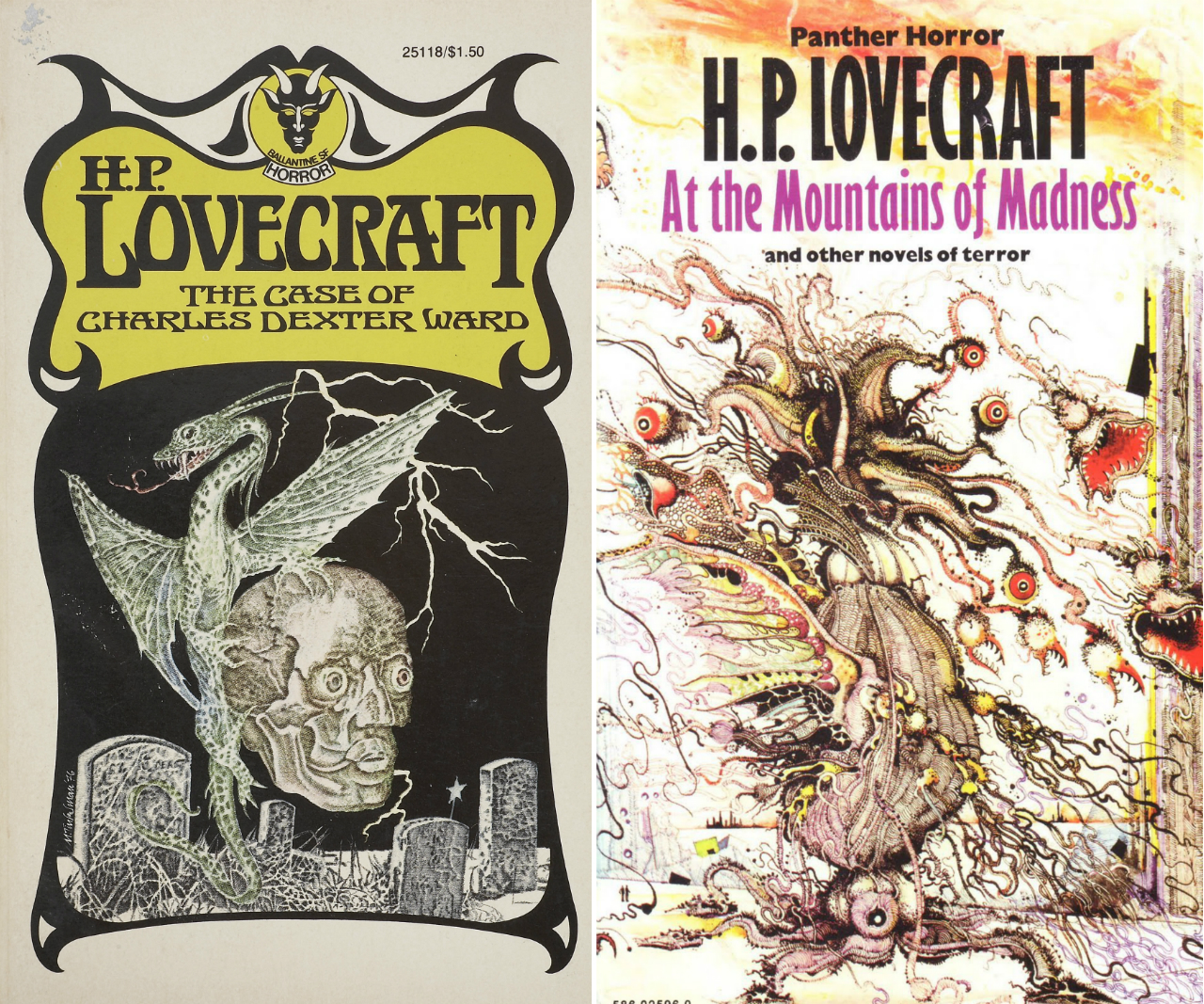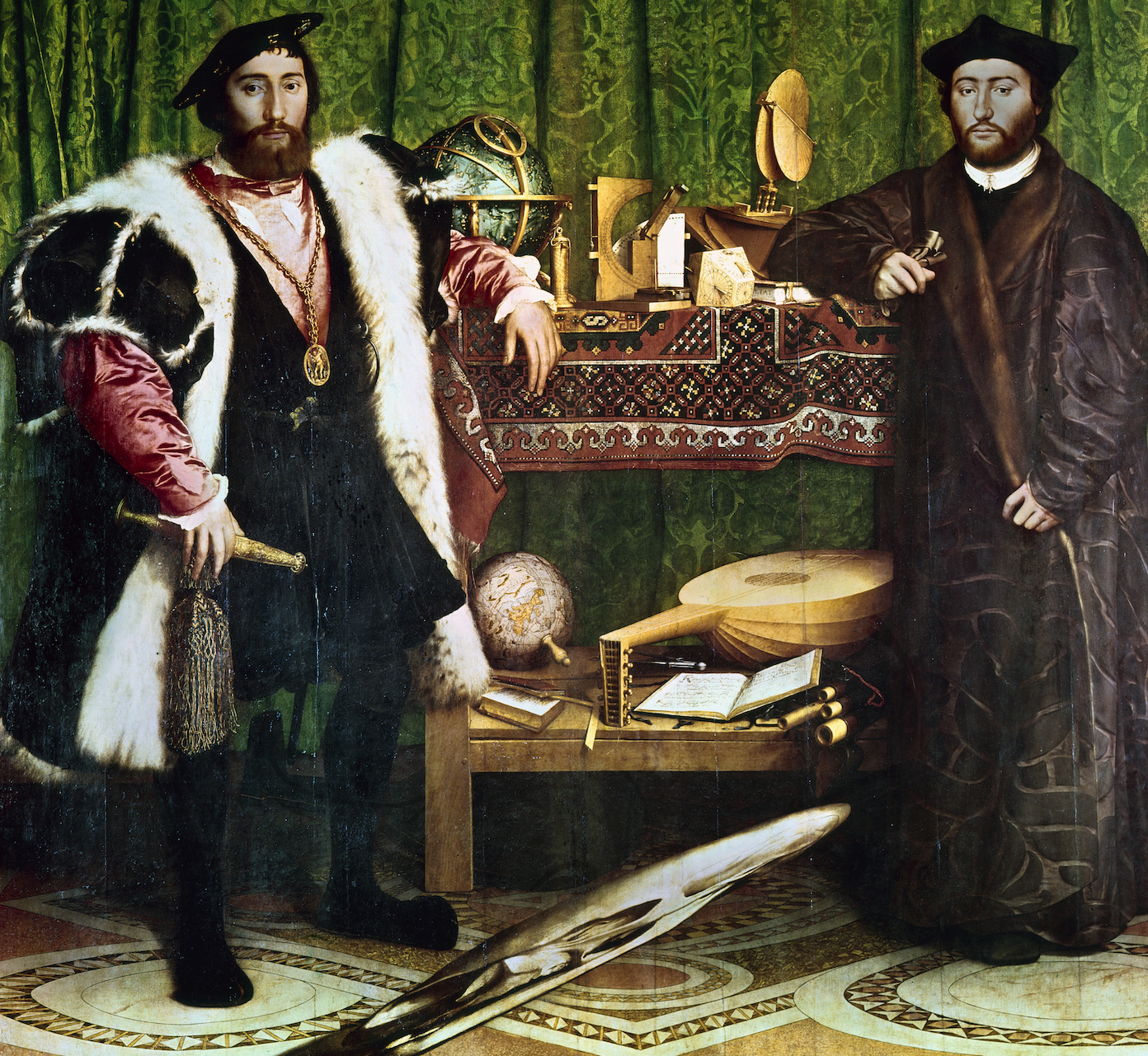We had hundreds of books in the house when I was a kid. My dad was an avid antiquarian; he used to buy old newspapers and old books, though not necessarily expensive ones. Most Finnish books aren’t super-ornate or leather-bound, but they could still be beautiful. He just loved to buy random books about all sorts of subjects.

- Art: Ville Valo
- The best 10 obscure '90s goth songs, by Ville Valo
- Listen to Ville Valo cover Abba on the new MGT album
- The story behind HIM’s Heartagram
I was – and am – a big fan of Carl McCoy and Fields Of The Nephilim, and they used elements of Lovecraft’s Cthulhu Mythos in their songs, particularly The Watchman on their second album [The Nephilim, 1988]. I was never too conscious of developing a dark side as a teenager. But I was listening to Carcass and Napalm Death, and then got into metal. Those bands were the soundtrack to my Poe fantasies, I suppose. The thing is, when I get into something, I’m like a racehorse with blinders on – I’ve got a one-track mind, so when I fall in love with something, as I did with Edgar Allan Poe, I read everything I can get my hands on about the subject, and then forget about it. It’s not like I have a friend for life with literature. Saying that, last week I read Poe’s Eleonora as a bedtime story.
I actually got into Poe when they started showing re-runs of Roger Corman’s movie adaptations starring Vincent Price. The first ones I saw were The Masque Of The Red Death and The Tomb of Ligeia [both 1964]. I haven’t watched …Tomb in years, but even though it’s been a while, little bits and bobs stick in your head for the rest of your life. I remember it starts with a funeral, and it’s so doomy and gloomy, it reminds me of the band Cathedral and their frontman Lee Dorrian – it’s so classy, and classic. House Of Usher [1960] is great too. The first line’s just great: there’s a knock at the door, the door opens and Vincent Price says [imitating Price brilliantly] “What is the meaning of this?” It’s fantastic!
I first saw Vincent Price in those Corman movies; I didn’t see the older black and white ones where he was a young matinée idol type. I always saw him as a horror fella, though he did a great drama much later in his career, in the 80s, called The Whales Of August, with Bette Davis. I always loved his accent and the tonality of his voice; he’s got such a great voice. Vincent Price really was my favourite. I’ve been meaning to get a tattoo of him for a long, long time. I’ve had the pleasure of Kat Von D doing all the portraits on my body, so it’d be stupid to have anybody else do Vincent for me.
A funny thing happened while we were recording Screamworks. There was an old church that they tore apart in California, and Vincent had bought some of the pews and some of the stained glass. When he passed away, his daughter sold a lot of stuff from his private collection on eBay. I was able to get hold of a piece of his stained glass. It was hanging from the ceiling when we were recording that album. It’s not fancy or ornate, but it’s an important relic for me.
At the same time that Finnish TV was showing the Corman movies, they also showed the Hammer Horror stuff with Christopher Lee and Peter Cushing. I enjoyed that, but what I really loved was Cushing playing Sherlock Holmes. He did a few movies, including The Hound Of The Baskervilles [1959]. I’m a huge Sherlock Holmes fan. I haven’t read so many of Conan Doyle’s books, but there have been some great film adaptations. Like Vincent, Christopher Lee had a great voice, but he was too good and handsome.
I always loved Goblin, the band that did that, and most of Argento’s stuff. They’re an Italian prog band and all their own stuff was shit, to my ears anyway, but the music they made for Dario was just great.
With Dario, one moment there’s a great film and the next there’s something really odd. He’s like David Cronenberg in that respect, another great director. Dario’s worked in so many different genres, not just horror but noir too, like those early ones, The Bird With The Crystal Plumage [1970] and The Cat o’ Nine Tails [1971]. But even if he’d just done Suspiria, that that would’ve been enough. He’s an odd fellow, too. If you see him in interviews he’s definitely not quite right, which is great!
We actually got in touch with him about doing a video for us – it would’ve been great to have something that even we were afraid to look at! Visually, HIM hasn’t really copied that style, but it’s definitely one of the things that made me realise how super-important that aspect of our music is. When we were mixing our first album, we had the cover printed and put on the mixing console, so as we worked we’d question whether the sounds fit the cover. There’s always a link.
I first heard of Austin Osman Spare through Carl McCoy. Now there’s a quirky fellow! Spare was an artist, a magician and everything in between. In the late 19th century he was a child prodigy when it came to painting, and one of the youngest artists to exhibit at the Royal Academy. Again, I got into him before the internet era, and it was almost impossible to find out more about him – there wasn’t much written about Spare at that time. But bit by bit I found pieces out. I was reading Peter Carroll’s book Psychonaut, all about Chaos Magic, and Austin Osman Spare invented what’s called Sigil Magic, so it all kind of intertwines. It’s like getting into Aleister Crowley through Led Zeppelin: “Who the hell is that guy that Jimmy Page was so into?” There’s a book called Austin Osman Spare: The Life & Legend Of London’s Lost Artist by Phil Baker; it’s a fascinating read; he really was one of a kind.

Hopefully HIM sort of evoke that feeling, a sense of being otherworldly. The best bands can do that. Type O Negative were able to create this really odd combination. They had such dry humour, and at the same time were kind of spooky and kind of fun – you want to get fucked up, get fucked, and at the same time be scared of it. Peter Steele is one of my icons, full stop. Through his music he was experimenting, trying to find the perfect balance between something really pretty, something really melancholy, and something really heavy-hitting. It’s a great combination – everything a growing boy needs…
Ville Valo was speaking to Grant Moon.
